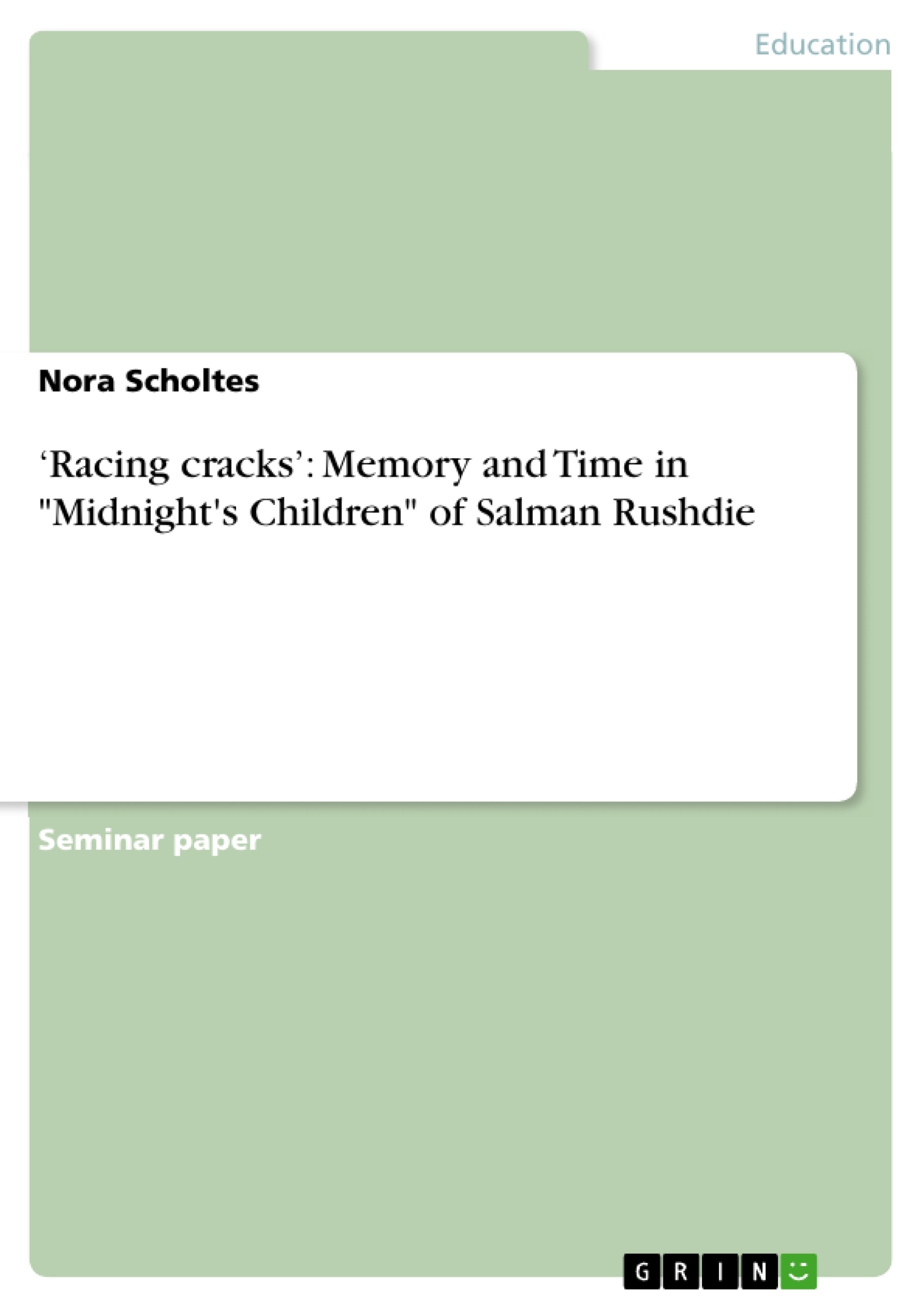The ‘inexorable ticktock’: as soon as Saleem’s narration starts, the countdown is set off and will not come to an end until the final full stop of Midnight’s Children (MC 82). Throughout the story, Saleem, being a ‘child of ticktock’, is remorselessly rushed on (MC 533). Towards what, one might ask. His childhood memory of a ‘fisherman’s pointing finger’, on a picture hanging on his bedroom wall, haunts Saleem throughout his narration as a reminder of his ‘inescapable destiny’ (MC 167). More precisely, the fisherman is pointing towards a letter send by India’s first Prime Minister on the occasion of Saleem’s birth which coincided with the birth of India as an independent nation. With this letter, Nehru proclaims that Saleem’s life will be the ‘mirror’ of the life of all Indians (MC 167). From his birth, Saleem thus carries the burden of being a reflection of his country and its people. With this enormous responsibility imposed on him, he is pushed on through his narrative. Literally, Saleem is racing against increasingly destructive cracks that threaten to destroy his body. On a metaphorical level, he is fighting against a force beyond his power, a force that ultimately, is going to win: time. Saleem’s narrative is drenched with a sense of fatalism, of it being ‘too late’. The race is already lost, but at least he must resist his defeat as long as he can, that is, until he has brought his narrative to an end. And all the way through, we hear the threatening tick tock, always aware that the final point zero is approaching fast and could surprise us, along with Saleem, at any moment. Interestingly however, where conventional story tellers build their narratives up towards one big countdown, one decisive climax, Saleem provides us with numerous countdowns. The first one leading up to Saleem’s birth, coinciding with India’s independence and partition, followed by a countdown leading up to Saleem’s amnesia. The birth of his son and his final annihilation constitute the two last countdowns. However, these countdowns do not grant his narrative any disclosure or release, but they seem to be endlessly renewed. Once a countdown is up, a new one begins; each promising a final purpose and meaning, but each time leaving us unsatisfied.
Inhaltsverzeichnis (Table of Contents)
- Memory and Time
- The Metafictional Dimension
- Time and History
- Identity
- Birth
Zielsetzung und Themenschwerpunkte (Objectives and Key Themes)
This essay examines Salman Rushdie's novel Midnight's Children, focusing on the interplay between memory, time, and identity in the context of the novel's metafictional elements. The essay explores how the novel's narrative structure, with its constant deferment of climaxes and its fluid concept of time, reflects the fragmented and hybrid nature of postcolonial identity.
- The role of memory and time in shaping Saleem's narrative
- The metafictional nature of the novel and its impact on the reader's understanding of fiction and reality
- The novel's fluid concept of time and its relationship to the themes of identity and history
- The construction of identity in a postcolonial context
- The significance of the birth theme in the novel
Zusammenfassung der Kapitel (Chapter Summaries)
The essay analyzes the role of memory and time in Midnight's Children, beginning by exploring the novel's opening scenes and the impact of Saleem's birth on his life story. The essay highlights how the novel's constant deferment of climaxes and its fluid concept of time reflect the fragmented and hybrid nature of postcolonial identity. The essay goes on to examine the novel's metafictional elements and how these contribute to a blurring of the lines between fiction and reality. Through detailed textual analysis, the essay illuminates how the novel's construction of time and identity reflects the complexities of the postcolonial experience.
Schlüsselwörter (Keywords)
The essay focuses on the main themes of memory, time, identity, and metafiction in Midnight's Children. It analyzes how these themes are intertwined and how they contribute to the novel's exploration of the postcolonial experience. Key terms discussed include: metafiction, hybridity, narrative structure, temporal fluidity, and birth. The essay draws on insights from critical perspectives such as postcolonial theory, postmodernism, and literary analysis.
Frequently Asked Questions
What is the significance of "ticktock" in Midnight's Children?
It represents the relentless countdown of time, connecting Saleem's life directly to the birth and history of independent India.
How is Saleem Sinai's life a "mirror" of India?
Prime Minister Nehru proclaims that Saleem's personal destiny will reflect the collective life and struggles of the Indian people.
What role does memory play in the narrative?
Memory is the tool Saleem uses to fight against time and destruction, though it is often fragmented and fluid.
What are the "destructive cracks" mentioned in the abstract?
They are metaphorical and literal threats to Saleem's body, representing the fragility of identity and the toll of carrying a nation's history.
Why are there multiple countdowns in the story?
Unlike conventional stories with one climax, Rushdie uses multiple countdowns to reflect the endlessly renewed and often unsatisfied search for meaning in postcolonial history.
- Quote paper
- Nora Scholtes (Author), 2008, ‘Racing cracks’: Memory and Time in "Midnight's Children" of Salman Rushdie, Munich, GRIN Verlag, https://www.grin.com/document/127105



